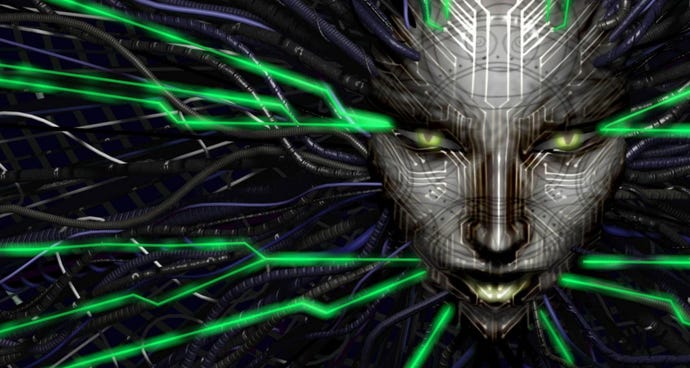Voice actors blindsided by SAG-AFTRA deal with AI company
A major development in the ongoing AI debate - and not a popular one at that.
A deal was announced to the world between American actors union SAG-AFTRA and AI voice actor company Replica Studios late last night at CES. This deal would allow willing voice actors to sign AI voice agreements for future video game projects. This announcement has gone down poorly among those firmly against AI voice over work of any kind.
Details of these voice agreement contracts can be found on the SAG-AFTRA website. In this post, these voice agreements are argued as a "fair, ethical agreement" that would apparently allow voice actors to safely license their voices for projects. Described as "an important step towards the ethical use of AI voices in creative projects by game developers", it apparently establishes minimum terms and conditions for those interested and allows those who agree to one of these agreements to opt their voice out of continued use for future projects.
This agreement is clearly SAG-AFTRA trying to snatch some degree of power in AI's use in game development for their represented artists, rather than standing against the practice of using AI in the voice over process altogether. SAG-AFTRA executive vice president Linda Powell spoke on behalf of the union at CES, stating the following in a recorded snippet:
"In the same way they thought they could replace teachers, are they really going to be able to replace a performance? I don't think so. But that doesn't mean they won't find ways to train audiences to accept less in certain circumstances because they're always going to be trying to maximize profit, and expediency is king."
What this voice over agreement will do is assist interested voice actors to replace an in-person performance with an AI one. It will assist in training audiences to accept AI performances through the use of sanctioned contracts, and they allow developers to profit off AI work.
Yes, this agreement does place some degree of power in the hands of voice actors comfortable with licensing their voices out - but as this voice agreement has not been made public we can't be sure just how much payoff they'll get. Do they get residuals for works trained off their voice? Do they have full visibility on what works their voices are being used on? They can opt out, but how long does that take? Will a developer really be expected to stop using an AI generated voice on a moment's notice? All these questions and more have no answers - but must be wrestled with in the future.
CEO of Replica Studios Shreyas Nivas posted a statement on Linkedin alongside the announcement of the agreement. "We know you may be wondering about the impact of this agreement on voice actors’ work. While the work itself won’t disappear, it will certainly evolve."
Nivas continues: "With the rapid advancement of AI capabilities, we think it’s essential that performers’ rights keep pace with a measured approach for industries such as entertainment and gaming. Our vision will enhance games and interactive experiences for studios, consumers, and voice actors by scaling opportunities for talent with more timely narratives, localized languages, and Smart NPCs."
Replica Studios is a relatively small company, founded in 2018 and based in Brisbane Australia. Since its founding it has created hundreds of AI voices, and even put out a demo inspired by Matrix Awakens in which all NPCs are voiced using AI. The company recieved a grant from Epic Games back in 2021 - and, just like Epic Games, has expressed excitement around metaverse projects.
This announcement has seemingly gone down badly too, among both video game consumers and voice over artists alike. Steve Blum - a legendary voice behind Baraka, Spike Spiegal, Wolverine and more expressed on Twitter that he was blindsided by the decision: "Excuse me? With all due respect…you state in the article “Approved by affected members of the union’s voiceover performer community.” Nobody in our community approved this that I know of. Games are the bulk of my livelihood and have been for years. Who are you referring to?"
This sentiment was echoed by others in the voice acting space. Melissa Medina summarized key problems with this agreement (see Tweet above). This was signal boosted via retweets from numerous voice actors in the video game space, including Yuri Lowenthal, Sunil Malhotra, and more. It's unclear who among SAG-AFTRA represented actors was consulted to approve this agreement, but many have seemingly been left out in the dark.
Typically speaking, SAG-AFTRA members vote to approve contracts before they are signed, as was the case recently with the 2023 TV/Theatrical Agreement with the Alliance of Motion Picture and Television Producers (AMPTP). That doesn't appear to have happened here, raising further questions as to what is going on. Video game voice actors voted overwhelming to strike over their concerns - AI being a major one of them. Their being blindsided with a deal seems counter to the consensus here.
Even if you are supportive of AI use with consenting actors, this is a bad look for SAG-AFTRA. Sprung out of nowhere, a community that was keen to strike in opposition has woken up to their own union literally shaking hands with AI companies. Ultimately, you've got to wonder how many voice actors will opt in to have their voices used in AI. If many don't - especially the bigger names in voice acting - SAG-AFTRA may very well have shot itself in the foot, at a time when union support is most needed.

